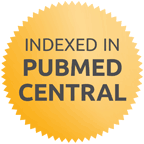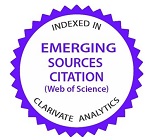Abstract
Introduction: Emergency upper gastrointestinal (GI) endoscopy is often prolonged and complex, performed during high-risk conditions. These procedures can be affected by an increased risk for airway compromise. Scarce literature can be found providing guidance on anesthesiological conduct during upper GI endoscopy in Emergency.
Methods: This was a monocentric retrospective study conducted on 96 patients treated in the Emergency Gastroenterology Unit at AORN Cardarelli, between June and October 2023. Key features of moderate and deep sedation procedures were investigated.
Results: There was no statistically significant difference in the incidence of complications and respiratory depression between the patients receiving moderate sedation versus those treated with deep sedation.
Discussion: Adverse outcomes of sedation and analgesia during endoscopic procedures are rare, even during a deep state of sedation.
Recommended Citation
Mariani, Martina; Villani, Romolo; De Simone, Anna; Cotena, Simona; Pirolli, Rossella; Nugnes, Manuela; Canciello, Silvio; Manganiello, Paolino; Santoriello, Elena; Schettino, Francesca; Schettini, Vincenzo; Bruno, Giorgia; and Annunziata, Raffaele
(2024)
"Deep Sedation in High-Risk Patients Undergoing Emergency Upper GI Endoscopy: A Retrospective Study Assessing Safety and Effectiveness,"
Translational Medicine @ UniSa: Vol. 26
:
Iss.
2
, Article 9.
Available at:
https://doi.org/10.37825/2239-9747.1067
Creative Commons License

This work is licensed under a Creative Commons Attribution-Noncommercial-No Derivative Works 4.0 License.
Included in
Health Communication Commons, Life Sciences Commons, Medicine and Health Sciences Commons




